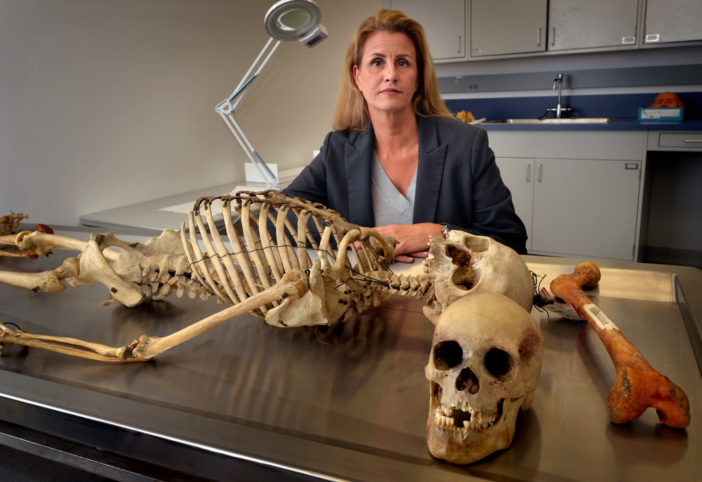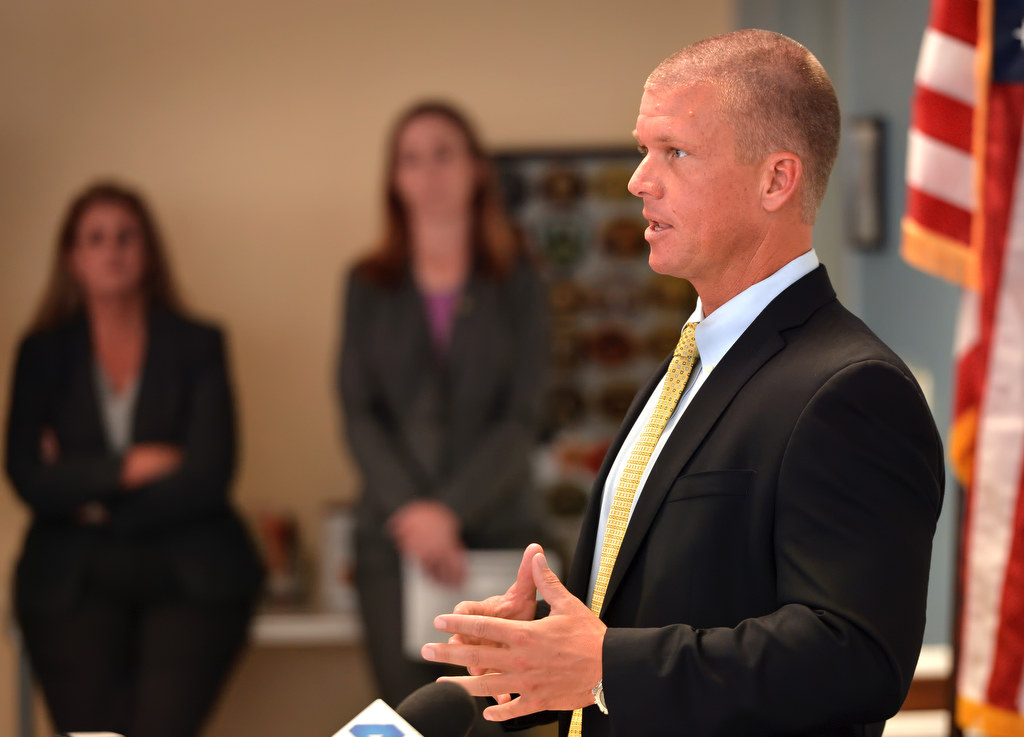In a job filled with tough cases, these are the toughest of all, Orange County deputy coroners say.
“To have walked this Earth,” says Senior Deputy Coroner Tiffany Williams, “to have lived a life, and then to die without your name — when we can’t finish your story, these are the cases that haunt us.”
On Saturday, Oct. 3, in the first event of its kind, the Orange County Sheriff’s Department Coroner Division will host an “Identify the Missing Day” to help end some nightmares — part of an effort by several counties in Southern California to solve some nagging missing persons cases.
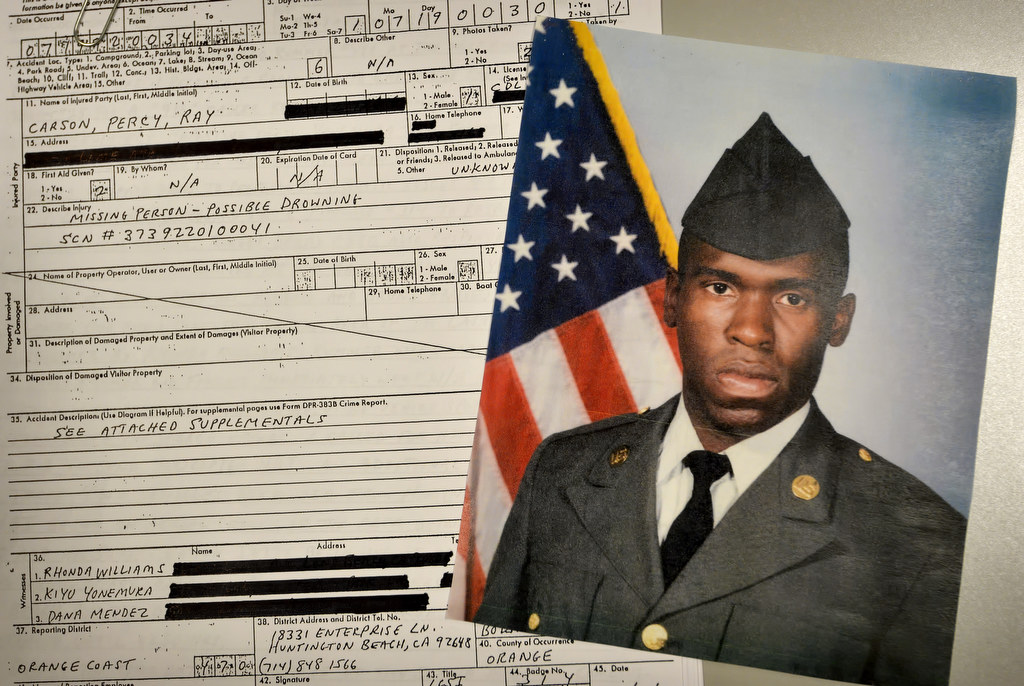
Percy Ray Carson, a 26-year-old from Compton, went missing in the ocean off Huntington Beach in 1992. A femur and jawbone were identified as his earlier this year after relatives submitted DNA samples. Photo by Steven Georges/Behind the Badge OC
Over the past year, the O.C. Coroner’s Office has been going over 100 cases in which skeletal remains have not been identified, re-examining police and death reports and using the latest technology to match the remains to missing persons. The 100 cases are among O.C. total missing-person caseload of 1,200, officials said.
Saturday’s event, from 9 a.m. to 3 p.m. at the California Coroner Training Center, 1071 W. Santa Ana Blvd., Santa Ana, is free and open to the public but is not an open house.
Officials are inviting families of a missing loved one to attend and provide DNA samples and any dental information, photographs and X-rays of the missing person.
Forensic professionals and law enforcement officers from throughout Orange County will be on hand to perform DNA cheek swabs on family members, file missing person reports and gather updated information on older reports.
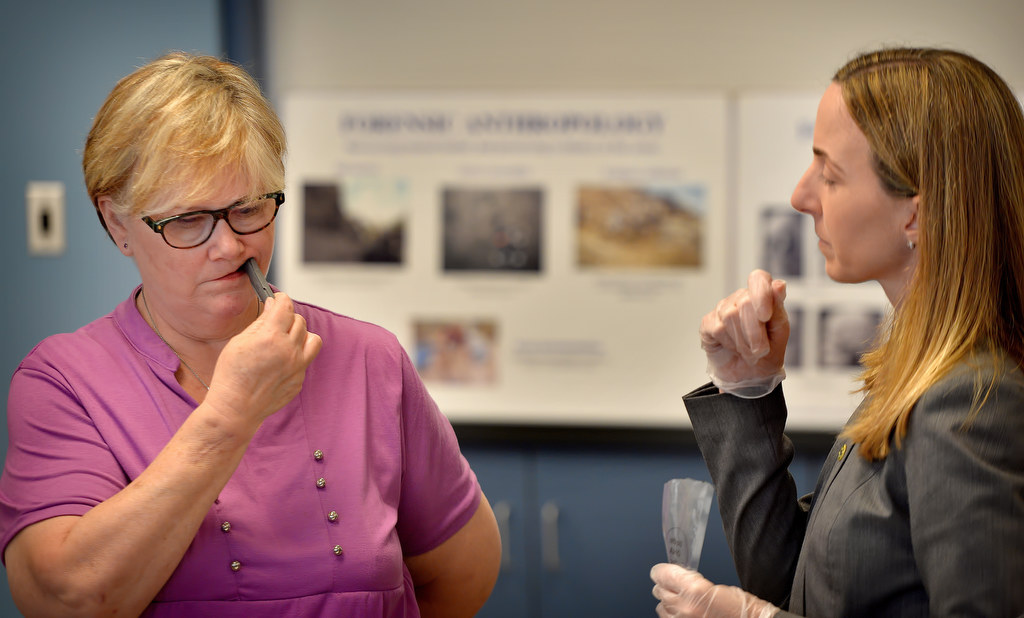
Jo Barber, an office specialist with the Orange County Coroner, gives a demonstration, with Allison O’Neal, supervising deputy coroner, of a DNA collection procedure at a news conference Tuesday at the California Coroner Training Center in Santa Ana. Photo by Steven Georges/Behind the Badge OC
An Orange County case solved earlier this year, and discussed at a news conference Tuesday at the California Coroner Training Center, housed in the O.C. Coroner’s Office, dramatically illustrates the power of how DNA samples can close the book on mysteries dating back decades.
On July 22, 1992, a 26-year-old man from Compton, Percy Ray Carson, was swimming off Huntington Beach when he slipped under the water. An extensive search turned up nothing. Relatives of Percy, who had served in the Army, filed a missing person report.
On Sept. 2, 1992, a human femur washed up in Seal Beach.
Coroner investigators determined the bone was consistent with the Carson case but scientifically, nothing could be done at the time to prove it. A jawbone found near the Seal Beach jetty 18 months after Carson vanished also was thought to possibly belong to him, but it, too, could not be tied to a person.
The O.C. Coroner reopened the Carson case this April.
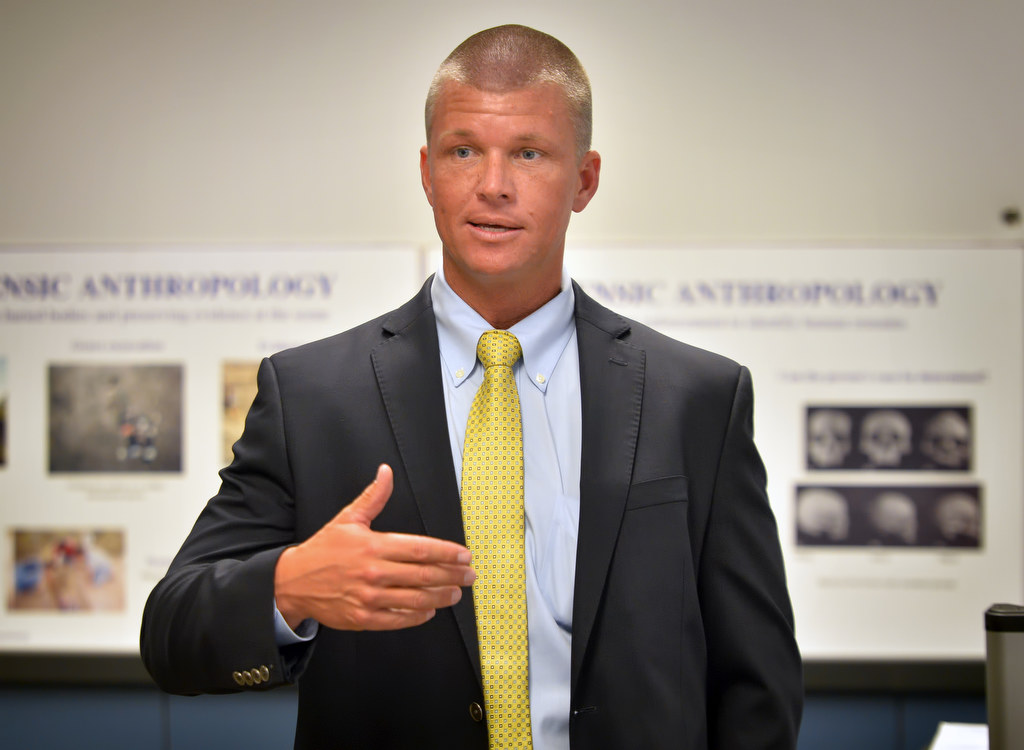
Lt. Jeff Hallock, public information officer for the Orange County Sheriff-Coroner Department, speaks at Tuesday’s news conference.
Photo by Steven Georges/Behind the Badge OC
The agency contacted missing person specialists at the California Department of Justice in Richmond, as well as detectives at the Huntington Beach PD and members of Carson’s family.
Carson’s mother and two sisters provided DNA samples, said Lt. Jeff Hallock of the OCSD.
DNA experts at the DOJ were able to determine that the femur and jawbone belonged to Carson, and his family was able to get some closure.
“They were very grateful and thankful that we hadn’t forgotten (this case),” Williams said at Tuesday’s news conference. Carson’s mother was scheduled to attend the news conference but did not.
Williams and another speaker at the news conference, Supervising Deputy Coroner Allison O’Neal, said Saturday’s event hopefully will yield similar success stories.
Sheila Tubbs, of Newport Beach, will attend Saturday’s “Identify the Missing” event.
Tubbs reported her brother missing to the Westminster PD in September 2013.
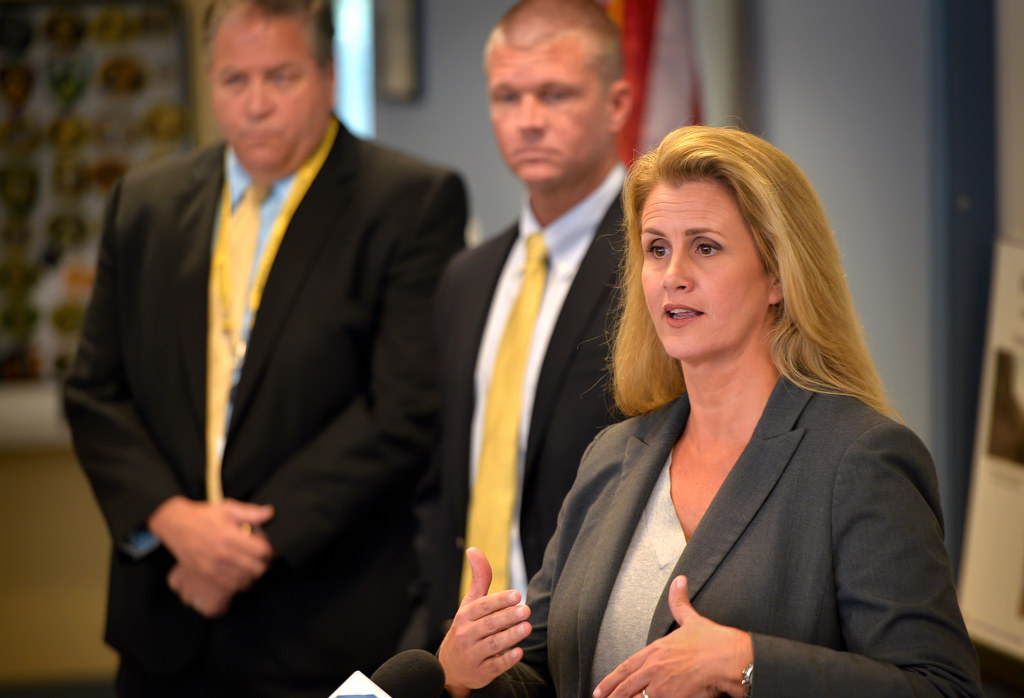
Tiffany Williams, senior deputy coroner, talks during a news conference about Saturday’s “Identify the Missing Day” in Santa Ana.
Photo by Steven Georges/Behind the Badge OC
Gary Patton, 64, of Westminster, the father of two adult children, went missing during a trip to Baja California to take photos of wales. The retiree’s vehicle was found stuck in the sand in a desolate area.
“We want to cover all of our bases,” Tubbs said of Saturday’s event. She, her sister and a sister-in-law — Patton’s former husband — will provide DNA samples.
“This has been a cold case for a while, and an event like this has kind of rejuvenated us,” Tubbs said.
Of the 100 unidentified deceased cases at the O.C. Coroner, about 20 percent appear to be the remains of Hispanics, Hallock said, although race is not always able to be determined based on skeletal remains.
Coroner officials have been able to determine that 60 of these remains are male and 27 female, with the balance either bone specimens or where gender cannot be determined for one reason or another.
So far, 10 families have said they will attend Saturday’s event, but officials hope publicity will get more people to show up.
In June, San Bernardino County hosted the first regional “Identify the Missing” event but the low turnout was blamed on lack of getting the word out.
Missing person cases nationwide can be looked into Saturday, officials said — not just cases tied to Orange County.
Nationally, there are more than 8,400 Jane and John Does, according to the state Department of Justice. Of these, 3,121 are in California and 2,179 are in Southern California.
For more information, contact Coroner Investigations at 714-647-7424 or Allison O’Neal at AONeal@OCSD.org
 Behind the Badge
Behind the Badge
